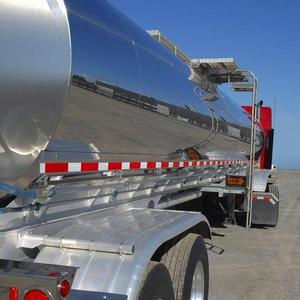Biodiesel No. 1 alternative fuel choice for fleet owners

March 24, 2016
BY Ron Kotrba
Advertisement
Advertisement
Related Stories
NY Waterway completes renewable diesel trial, moves forward with significant conversion to cleaner energy source
NY Waterway, which operates the largest ferry fleet between New Jersey and New York, has completed its trial of renewable diesel fuel and is moving forward with efforts to transition a significant portion of its fuel usage to the renewable fuel.
Neste and Air Canada sign agreement for the supply of 60,000 tons of Neste MY Sustainable Aviation Fuel
Neste and Air Canada have signed an agreement for the supply of 60,000 metric of neat Neste MY Sustainable Aviation Fuel. Neste will deliver the SAF, blended with conventional jet fuel, to the Vancouver marine terminal starting in December 2024.
Cathay has announced its Corporate Sustainable Aviation Fuel (SAF) Programme has achieved significant growth this year. The program partners together in 2024 have committed to using 2,650 metric tons of SAF (equal to 906,000 U.S. gallons).
Wizz Air has announced it will trial operations using SAF in collaboration with Airbus. The trial will involve flights across two major routes with SAF supplied by Cepsa and distributed by World Fuel Services.
Hill Aircraft and World Fuel announce agreement to provide consistent SAF supply to Atlanta’s business jet operators
Hill Aircraft has furthered its commitment in providing alternative jet fuel through an expanded support agreement with World Fuel Services that will make it the first FBO in Georgia to offer dedicated SAF for business aviation customers.





